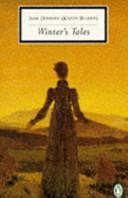Works

Winter's Tales
Karen BlixenLast Tales
Karen BlixenFamous Karen Blixen Quotes
As quoted in Reader's Digest (April 1964)
Variant: I know a cure for everything. Salt water … in one form or another, sweat, tears or the salt sea.
Variant: The cure for anything is salt water — sweat, tears, or the sea.
Karen Blixen Quotes about time
Written of her experience with actress Marilyn Monroe in a letter to the American author, Fleur Cowles Meyer, in 1961. As quoted in Fragments, by Stanley Buchthal and Bernard Comment (2010)
Source: Out of Africa / Shadows on the Grass
"Babette's Feast"
Anecdotes of Destiny (1953)
Context: Of what happened later in the evening nothing definite can here be stated. None of the guests later on had any clear remembrance of it. They only knew that the rooms had been filled with a heavenly light, as if a number of small halos had blended into one glorious radiance. Taciturn old people received the gift of tongues; ears that for years had been almost deaf were opened to it. Time itself had merged into eternity. Long after midnight the windows of the house shone like gold, and golden song flowed out into the winter air.
Karen Blixen Quotes about people
Source: Out of Africa (1937)
Context: People who dream when they sleep at night know of a special kind of happiness which the world of the day holds not, a placid ecstasy, and ease of heart, that are like honey on the tongue. They also know that the real glory of dreams lies in their atmosphere of unlimited freedom. It is not the freedom of the dictator, who enforces his own will on the world, but the freedom of the artist, who has no will, who is free of will. The pleasure of the true dreamer does not lie in the substance of the dream, but in this: that there things happen without any interference from his side, and altogether outside his control. Great landscapes create themselves, long splendid views, rich and delicate colours, roads, houses, which he has never seen or heard of...
"The Deluge at Norderney"
Seven Gothic Tales (1934)
"The Old Chevalier"
Seven Gothic Tales (1934)
"The Dreamers"
Seven Gothic Tales (1934)
Context: The consolations of the vulgar are bitter in the royal ear. Let physicians and confectioners and servants in the great houses be judged by what they have done, and even by what they have meant to do; the great people themselves are judged by what they are. I have been told that lions, trapped and shut up in cages, grieve from shame more than from hunger.
Letter to her sister Elle (1923); later published in Letters from Africa: 1914-1931 (1981) edited by Frans Lasson, translated by Anne Born.
Karen Blixen: Trending quotes
“I had a farm in Africa, at the foot of the Ngong Hills.”
First lines.
Source: Out of Africa (1937)
Context: I had a farm in Africa, at the foot of the Ngong Hills. The Equator runs across these highlands, a hundred miles to the North, and the farm lay at an altitude of over six thousand feet. In the day-time you felt that you had got high up, near to the sun, but the early mornings and evenings were limpid and restful, and the nights were cold.
"The Deluge at Norderney"
Source: Seven Gothic Tales (1934)
Karen Blixen Quotes
"Babette's Feast"
Anecdotes of Destiny (1953)
Context: When later in life they thought of this evening it never occurred to any of them that they might have been exalted by their own merit. They realized that the infinite grace of which General Loewenhielm had spoken had been allotted to them, and they did not even wonder at the fact, for it had been but the fulfillment of an ever-present hope. The vain illusions of this earth had dissolved before their eyes like smoke, and they had seen the universe as it really is. They had been given one hour of the millennium.
As quoted in obituaries (7 September 1962)
Variant: God made the world round so we would never be able to see too far down the road.
Source: Out of Africa
“All sorrows can be borne if you put them into a story or tell a story about them.”
As quoted in The Human Condition (1958) by Hannah Arendt. This appears as part of a statement in a 1957 interview where she speaks of a friend's comments about her:
I am not a novelist, really not even a writer; I am a storyteller. One of my friends said about me that I think all sorrows can be borne if you put them into a story or tell a story about them, and perhaps this is not entirely untrue. To me, the explanation of life seems to be its melody, its pattern. And I feel in life such an infinite, truly inconceivable fantasy.
Interview with Bent Mohn in The New York Times Book Review (3 November 1957)
Paraphrased variant : All suffering is bearable if it is seen as part of a story.
Letter to her mother (26 February 1919)
“It never has happened, and it never will happen, and that is why it is told.”
"The Immortal Story"
Anecdotes of Destiny (1953)
“Real art must always involve some witchcraft.”
Letters from Africa: 1914-1931 (1981) edited by Frans Lasson, translated by Anne Born.
"The Blank Page"
Last Tales (1957)
Context: Why, you are to become a story teller, and I shall give you the reasons! Hear then: Where the storyteller is loyal, eternally and unswervingly loyal to the story, there, in the end, silence will speak. Where the story has been betrayed, silence is but emptiness. But we, the faithful, when we have spoken our last word, will hear the voice of silence. Whether a small snotty lass understands it or not.
Out of Africa (1937)
Context: The true aristocracy and the true proletariat of the world are both in understanding with tragedy. To them it is the fundamental principle of God, and the key, the minor key, to existence. They differ in this way from the bourgeoisie of all classes, who deny tragedy, who will not tolerate it, and to whom the word tragedy means in itself unpleasantness.
As quoted in Journey Through Womanhood: Meditations from Our Collective Soul (2002) by Tian Dayton
Source: Babette's Feast and Other Anecdotes of Destiny
“our longing is our pledge, and blessed are the homesick, for they shall come home.”
Source: Babette's Feast and Other Anecdotes of Destiny
Source: Out of Africa
“I first began to tell tales to delight the world and make it wiser…”
Anecdotes of Destiny (1953)
“My love was both humble and audacious, like that of a page for his lady…”
"The Old Chevalier"
Seven Gothic Tales (1934)
Out of Africa (1937)
"The Dreamers"
Seven Gothic Tales (1934)
"The Deluge at Norderney"
Seven Gothic Tales (1934)
“The entire being of a woman is a secret which should be kept.”
"The Cardinal's Third Tale"
Last Tales (1957)
As quoted in Voices: A Memoir (1983) by Frederic Prokosch
Carnival: Entertainments and Posthumous Tales (1971)
"The Cardinal's First Tale"
Last Tales (1957)
Out of Africa (1937)
“Man and woman are two locked caskets, of which each contains the key to the other.”
"A Consolatory Tale"
Winter's Tales (1942)
Out of Africa (1937)
Out of Africa (1937)
"Tempests"
Anecdotes of Destiny (1953)
“The best of my nature reveals itself in play, and play is sacred.”
On Modern Marriage and Other Observations (1986)
"The Diver"
Anecdotes of Destiny (1953)
Daguerreotypes and Other Essays (1979) This has also been abbreviated and quoted as "The will to sacrifice . . . was the disdain of death."
"The Old Chevalier"
Seven Gothic Tales (1934)
“Human talk is a centrifugal function, ever in flight outwards from what is on the talker's mind.”
"The Invincible Slave-owners"
Winter's Tales (1942)
“God made the world round so we would never be able to see too far down the road.”
As quoted in obituaries (7 September 1962)


